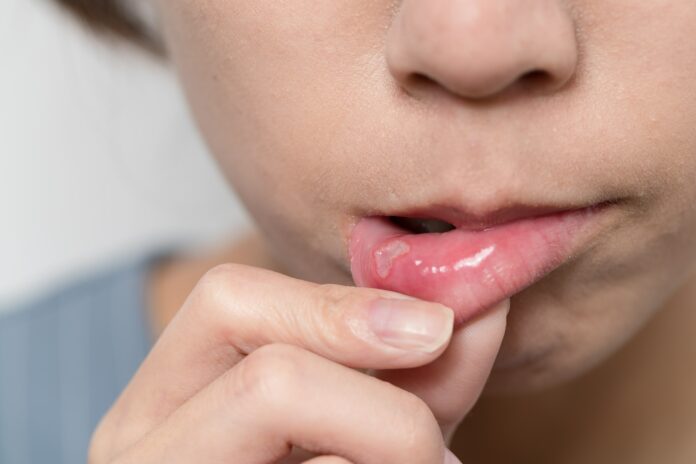Overview Of Canker Sores
A canker sore is a painful, open sore in the mouth. They are white or yellow and surrounded by a bright red area. They are not cancerous.
A canker sore is not the same as a fever blister (cold sore).
Commonly Associated With
Aphthous ulcer; Ulcer – aphthous
Causes Of Canker Sores
Canker sores are a common form of mouth ulcer. They may occur with viral infections. In some cases, the cause is unknown.
Canker sores may also be linked to problems with the body’s immune system. The sores may also be brought on by:
- Mouth injury from dental work
- Cleaning the teeth too roughly
- Biting the tongue or cheek
Other things that can trigger canker sores include:
- Emotional stress
- Lack of certain vitamins and minerals in the diet (especially iron, folic acid, or vitamin B-12)
- Hormonal changes
- Food allergies
Anyone can develop a canker sore. Women are more likely to get them than men. They may also run in families.
Symptoms Of Canker Sores
Canker sores most often appear on the inner surface of the cheeks and lips, tongue, upper surface of the mouth, and base of the gums.
Symptoms include:
- One or more painful, red spots or bumps that develop into an open ulcer
- White or yellow center
- Small size (most often under one-third inch or 1 centimeter across)
- Gray color as healing starts
Less common symptoms include:
- Fever
- General discomfort or uneasiness (malaise)
- Swollen lymph nodes
- Pain often goes away in 7 to 10 days. It can take 1 to 3 weeks for a canker sore to completely heal. Large ulcers can take longer to heal
Exams & Tests
Your health care provider can often make the diagnosis by looking at the sore.
If canker sores persist or continue to return, tests should be done to look for other causes, such as erythema multiforme, drug allergies, herpes infection, and bullous lichen planus.
You may need further testing or a biopsy to look for other causes of mouth ulcers. Canker sores are not cancer and do not cause cancer. There are types of cancer, however, that may first appear as a mouth ulcer that does not heal.
Treatment Of Canker Sores
In most cases, the sores go away without treatment.
Try not to eat hot or spicy foods, which can cause pain.
Use over-the-counter medicines that ease pain in the area.
Rinse your mouth with salt water or mild, over-the-counter mouthwashes. (DO NOT use mouthwashes that contain alcohol which can irritate the area more.)
Apply a mixture of half hydrogen peroxide and half water directly to the sore using a cotton swab. Follow by dabbing a small amount of Milk of Magnesia on the sore afterward. Repeat these steps 3 to 4 times a day.
Rinse your mouth with a mixture of half Milk of Magnesia and half Benadryl liquid allergy medicine. Swish mixture in the mouth for about 1 minute and then spit out.
Medicines prescribed by your provider may be needed for severe cases. These may include:
- Chlorhexidine mouthwash
- Stronger medicines called corticosteroids are placed on the sore or are taken in pill form
- Brush your teeth twice a day and floss your teeth every day. Also, get routine dental check-ups.
- In some cases, gastric acid-reducing medicines can decrease the discomfort.



